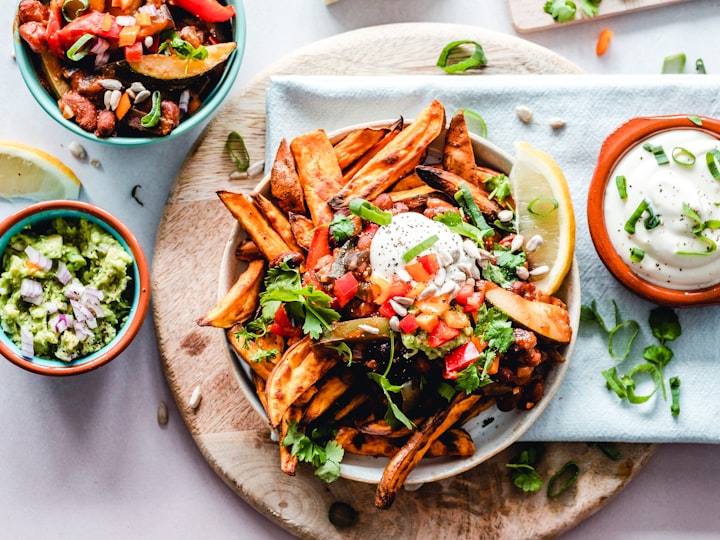The top 10 plant-based sources of protein
Protein is an essential nutrient that plays a crucial role in the growth and repair of the body's tissues. It is also important for maintaining healthy bones and muscles. Many people associate protein with animal products, such as meat, eggs, and dairy. However, there are also many plant-based sources of protein that can provide all of the essential amino acids the body needs. In this article, we'll take a look at the top 10 plant-based sources of protein.

Legumes: Legumes, such as beans, lentils, and peas, are among the best plant-based sources of protein. They are also rich in fiber, iron, and other essential nutrients. One cup of cooked lentils, for example, contains 18 grams of protein.
Quinoa: Quinoa is a grain that is often used as a substitute for rice. It is a complete protein, meaning it contains all of the essential amino acids the body needs. One cup of cooked quinoa contains 8 grams of protein.
Nuts and Seeds: Nuts and seeds are also good sources of protein. Almonds, for example, contain 6 grams of protein per ounce, and pumpkin seeds contain 5 grams of protein per ounce.
Tofu and Tempeh: Tofu and tempeh are both made from soybeans and are good sources of protein. Tofu contains 10 grams of protein per half cup, and tempeh contains 15 grams of protein per half cup.
Seitan: Seitan, also known as wheat gluten, is a popular protein source for vegetarians and vegans. It is made from wheat protein and contains 25 grams of protein per 3.5 ounces.
Spinach: Spinach may not be the first thing that comes to mind when thinking of protein sources, but it is actually a good source of protein. One cup of cooked spinach contains 5 grams of protein.
Broccoli: Broccoli is another vegetable that is a good source of protein. One cup of cooked broccoli contains 3 grams of protein.
Avocado: Avocados are not only a good source of healthy fats, but they also contain 2 grams of protein per avocado.
Spirulina: Spirulina is a type of blue-green algae that is often sold as a powder or supplement. It is a complete protein and contains 8 grams of protein per ounce.
Chia Seeds: Chia seeds are a good source of protein, as well as omega-3 fatty acids and other essential nutrients. Two tablespoons of chia seeds contain 4 grams of protein.
It's important to note that while these plant-based sources of protein can be a great way to supplement your diet, it's important to have a well-rounded diet that includes variety of foods to get all the essential nutrients your body needs. Furthermore, if you're following a vegan diet, you may need to eat a variety of protein sources to get all the essential amino acids that your body needs. Consulting with a dietitian or a nutritionist can be beneficial for this purpose.
The impact of social media on mental health
Social media has become a staple in our everyday lives, allowing us to connect with others, share our thoughts and experiences, and stay informed about current events. However, with the rise of social media use, there has been an increase in concern about its potential negative impact on mental health. In this article, we will take a look at the various ways in which social media can affect our mental health, both positively and negatively.
One of the most well-documented negative effects of social media on mental health is the potential for increased feelings of loneliness and isolation. Studies have found that people who spend more time on social media tend to have more feelings of loneliness and social isolation. This may be because social media can create the illusion of social connections without the actual fulfillment of social needs, leading to feelings of emptiness and disconnection from others.
Another negative impact of social media on mental health is the potential for increased feelings of anxiety and depression. Studies have found that people who spend more time on social media tend to have higher levels of anxiety and depression. This may be because social media can expose us to a constant stream of negative news and information, as well as the constant comparison of our own lives to the highlight reels of others.
Additionally, social media can also have a negative impact on self-esteem and body image. Studies have found that people who spend more time on social media tend to have lower self-esteem and a greater likelihood of body dissatisfaction. This may be because social media can expose us to a constant stream of images and messages that promote unrealistic and often unattainable standards of beauty and success.
On the other hand, social media can also have positive effects on mental health. For example, social media can provide a sense of community and connection for people who may feel isolated in their offline lives. Additionally, social media can be a valuable tool for seeking out and receiving support from others, particularly for those dealing with mental health issues such as anxiety and depression.
In conclusion, social media can have both positive and negative effects on mental health. It is important to be mindful of the amount of time spent on social media, and to make an effort to engage in other activities that promote mental well-being such as exercise, spending time with friends and family, and pursuing hobbies. Additionally, it's important to be mindful of the type of content we consume on social media and to unfollow accounts that make us feel bad about ourselves. And if the negative effects of social media on mental health are severe, it would be a good idea to consult a mental health professional.





Comments
There are no comments for this story
Be the first to respond and start the conversation.